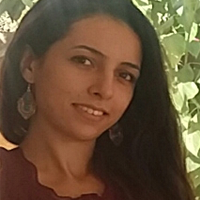نضال طويل وحيف مستمر
بعد نضالها لأكثر من تسع سنوات، تمكنت أخيراً الإعلامية بولي أدامو إيدي من الحصول على ترقية. تقول عن مدير المحطة التلفزية التي تعمل بها إنه رجل أعمال ليس له علاقة بالمجال. وتشرح لي أن العمل الإعلامي بالنيجر أصبح باب رزق للمستثمرين منذ مطلع الألفية الثانية، بينما لا يتعدى أن يكون فرصة للبقاء على قيد الحياة بالنسبة للصحفيين، في بلد يتهدده الجفاف والانقلابات وحركات تمرد في أقصى الشمال.
تعمل السيدة بولي بقناة بونفيري (Bonferey) الفضائية، وهي محطة خاصة مقرها نيامي، معدة برامج ومقدمة أخبار وأحياناً مراسلة.. "مهامي في المحطة غير محددة. انسي ما درسته في معهد الإعلام ومرحباً بك في الميدان" وتضيف: "عليك بكل بساطة أن تقولي حاضر لكل مهمة تسند إليك، بغض النظر عن كفاءتك وخبرتك، وإلا قد يُستغنى عنك في رمشة عين، ويأتون بموظف آخر، فالمنتظرون على باب التوظيف جموع غفيرة".
ففي النيجر اليوم قناة فضائية واحدة، وصحيفة ورقية واحدة وإذاعة واحدة تابعة للدولة، تعتبر الصوت الرسمي الناطق باسم الحكومة، ولا مجال للمتخرجين الجدد من معهد الصحافة والإعلام بفرصة للعمل فيها. ولهذا يبقى حظهم الوحيد أن يجدوا مكاناً شاغراً في إحدى المحطات الخاصة، وهي 11 قناة فضائية، و100 إذاعة، تابعة بالأساس لرجال أعمال، جربوا استثمار أموالهم في قطاعات مختلفة، لكنهم اكتشفوا ذات صدفة أن الإعلام هنا، مصباح علاء الدين السحري.
لم يمنع السيدة بولي حملها ولا ولادتها من العمل. هي أم لطفلين الآن. تخبرني أن القوانين لا تضمن لها أي تعويض عن الغياب مهما كان السبب، فضلاً عن ضمان لمقعدها في القناة. "حسناً، ليست قوانين العمل وحدها هي المشكلة، الآن لا يمكنني ترك طفلي الصغير في المنزل مع جدته مثلاً. المجتمع النجيري ينظر إلينا بتوجس، لأنه يرى أن وظيفتي الحقيقية هي الإتيان بمزيد من الأطفال إلى هذا العالم بينما أنا أسيرة جدران أربعة. وعندما يكون الحال هو ضرورة خروجي للبحث عن عمل لأطعم صغاري الجوعى، فإنهم يلقون باللوم علي بدل تعاطفهم ومساندتهم لأم مناضلة".
عندما سألتُ بولي عن قيمة الترقية التي حصلتها أخبرتني أنها 100 ألف فرنك سيفا بدل التسعين ألفاً، وهو ما يعادل 180 دولارا فقط. وأكدت لي أنه لم يسبق لأي زميلة معها أن تقاضت هذا الراتب قبلها.. "كانت 90 ألف سيفا سقف ما نحصل عليه كإعلاميات في المحطات الخاصة، بينما يتقاضى الزملاء معنا أضعاف ذلك بكثير".
لكن الصورة قد تختلف في بوركينافاسو مثلاً، فنقص الموارد البشرية، يدفع أرباب العمل إلى قبول كل الراغبين في العمل، وتدريبهم على العمل الصحفي. والنتيجة طبعاً: توظيفهم ولكن برواتب ضعيفة. يحكي لي الإعلامي آدم م. ك. وهو يعمل كمعد برامج ومصور في القناة الفضائية "لومييغ" (Lumière)بعاصمة بوركينا فاسو (واغادوغو) أن نضالهم الحقيقي لم يكن من أجل زيادة الرواتب، بل لمن تُعطى تلك الرواتب أصلا، إذ أن "أقل من 10% من مجموع سكان البلد من يلتحق بالتعليم العالي عندنا.. البلد زراعي والشباب يفضل العمل في الحقول بدل المجازفة بالعمل في قطاع عائداتُه المادية متدنية للغاية".
الأخبار السياسية خط أحمر:
رغم أن القانون النجيري ينص على المساواة بين الجنسين منذ اعتماد البلد النظام الديمقراطي في حكمه مطلع تسعينيات القرن المنصرم، وتبنيه سياسة الانفتاح الإعلامي أيضاً، إلا أن واقع الحال يحكي غير ذلك. فعلاوةً عن الفرق الشارخ في الرواتب، هناك أنواع أخرى من التمييز تمارس في حق الإعلاميات.
تحكي لي بولي: "السياسة في بلدي حكر على الرجال.. ليس من نصيبي كمواطنة أولاً وإعلامية ثانياً، أن أساهم في تحريك الرأي العام".
لا يرجع حرمان الإعلاميات النجيريات من تغطية الأخبار السياسية إلى قوانين حكومية، فالبداية كانت تفضيل الوسائل الإعلامية الاعتماد على الإعلاميين الرجال لضرورة اجتماعية قاهرة، إذ كان ظهور المرأة على شاشة التلفاز واقتحامها للميادين السياسية وصمة عار على كل الأسرة، لكن الأمر تطور وأصبح واقعا وجزءا تتبعه تلك الوسائل في سياساتها. واقعٌ تواطأت معه كثير من الإعلاميات ولكن، لأسباب أخرى.
تحكي لي بولي: "لا يمكنني إنكار أن النظام الأبوي في النيجر مسؤول عن الوضع غير المتكافئ بين الرجل والمرأة عموما.. فمهما كان عملي مهنياً سيُنظر إليه باستخفاف وعدم جدية من مسؤولي، ناهيك عن رجل سياسة.. " وتضيف: "أثناء تغطيتي للانتخابات الفائتة، تعرضتُ للتحرش من طرف أحد السياسيين البارزين، يشغل الآن رتبة وزير دولة.. أخبرته بشكل صريح أني متزوجة وكانت ردة فعله صادمة.. قال لي: وما الفرق؟ إنهم يعتقدون أنك امرأة سهلة المنال وربما ترغبين في المال كما هو الحال مع الإعلاميين.. إذ أنهم يتسابقون لتغطية الأخبار السياسية ولقاء السياسيين من أجل بعض المكاسب المادية".
حرية مزورة:
حققت بوركينافاسو ارتفاعاً في مؤشر حرية الصحافة والتعبير في السنوات الأخيرة، حالها حال باقي دول القارة السمراء باستثناء دول وسط أفريقيا، والتي تعاني اضطرابات أمنية أودت بحياة كثير من الصحفيين، وألقت بالبقية خلف قضبان السجون. لكن يبقى وضع القارة مع ذلك أفضل من آسيا ودول الشرق الأوسط، إذ احتلت المرتبة الثالثة في حرية الصحافة بعد الأميركيتين وأوروبا في تصنيفات مراسلون بلا حدود لهذه السنة.
عندما سألت آدم إلى أي حد تستطيع الوسائل الإعلامية في بوركينافاسو أن تعبر عن رأيها، شرح لي أن التحدي الأساسي هو الحصول على ترخيص من لجنة المجلس الأعلى للاتصالات "سي أس سي" (csc) أولاً، لفتح قناة أو إذاعة، وذلك من خلال إقناعهم بأن المحطة دينية كانت، تجارية أو إخبارية، ستجذب اهتمام شريحة مهمة من المجتمع، والأهم من ذلك أنه مشروع سيساهم في تخفيف البطالة".
ورغم أن بوركينافاسو لم تنجو من الهجمات الإرهابية السنوات الماضية، إلا أن مؤشر حرية الصحافة فيها يبقى أفضل من السنيغال مثلاً، حسب إحصائيات مراسلون بلا حدود.. نتيجةٌ تدعو لكثير من علامات الاستفهام خصوصاً وأن الوضع الأمني للبلدين، وانفتاحهما غير قابل للمقارنة. يكفي أن تسأل أي رجل أعمال في أفريقيا أي من البلدين لا يخشى الاستثمار فيه!
بعد أن توافق لجنة "سي أس سي" على طلب فتح محطتك في بوركينافاسو، ستخبرك أن المحتوى الذي ستبثه لن يخضع للمراقبة. كلام صحيح، لأن التجربة علمت الممارس للمهنة هنا، متى وكيف وأين يجدر به أن يتوقف. هناك اليوم 20 قناة فضائية ومئات الإذاعات الخاصة في البلد. لا غرابة إن كان جزء منها يبثُ لنصف يوم فقط، والجزء الآخر لا يختلف عنده الليل عن النهار، إنها محطات البهجة والفرح، والهروب من واقع قارة ليست عذراء كما يطلق عليها، بل هي مغتصبة: افتح عينيكَ أيها المشاهد العزيز على الأشرطة الغنائية طيلة اليوم، واسمح لنا ببعض الإعلانات التجارية على رأس كل ساعة.








































